Related Research Articles
David Southall is a British paediatrician who is an expert in international maternal and child hospital healthcare and in child protection including the diagnosis of the controversial Fabricated or Induced Illness, and who has performed significant research into Sudden Infant Death Syndrome (SIDS).
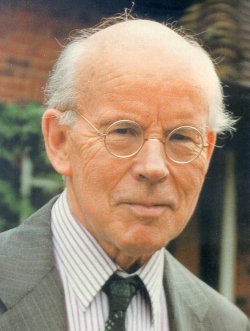
Sir John Peter Mills Tizard was a British paediatrician and professor at the University of Oxford. Tizard was principally notable for important research into neonatology and paediatric neurology and being a founder member of the Neonatal Society in 1959. Tizard was considered the most distinguished academic children's physician of his generation.

Dame Kate Isabel Campbell, DBE, FRCOG was a noted Australian physician and paediatrician. Campbell's discovery, that blindness in premature babies was caused by high concentrations of oxygen, resulted in the alteration of the treatment of premature babies world-wide and for this she received global recognition.
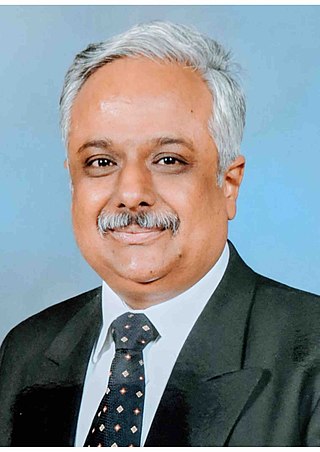
Dr. Karthik Nagesh is a neonatologist in India. He has been practicing neonatal intensive care since 1992 at the Manipal Hospital in Bangalore. He is well known in India for his pioneering work in intensive care for sick neonates especially, Surfactant Therapy and ventilation for sick babies with respiratory distress. He is currently the Chairman of the Manipal Advanced Children's Center and Chairman and HOD of Neonatology and Neonatal ICUs at the Manipal Hospitals Group as well as an adjunct professor of paediatrics, KMC at Manipal University.
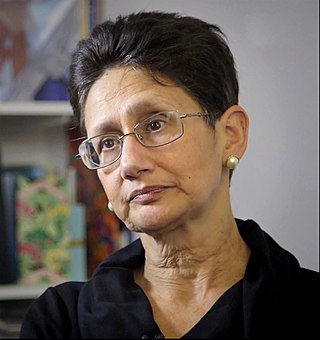
Neena Modi is a British physician and Professor of Neonatal medicine at Imperial College London. She is the current president of the UK Medical Women’s Federation, and past-president of the Royal College of Paediatrics and Child Health, serving in this role from April 2015 to April 2018. She is one of only four women to ever hold this position.
Lilly Magdalene Suzanne Dubowitz was a Hungarian-born British paediatrician who together with her husband, the British neurologist Victor Dubowitz, developed the Dubowitz Score to estimate gestational age.

Herbert Barrie, was a British consultant paediatrician and a leading figure in neonatology. He was a pioneer in the emerging specialty of paediatrics and neonatal medicine; and he developed one of the first neonatal intensive care units in London.
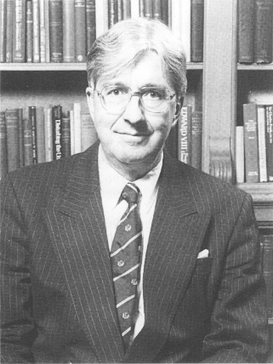
Edward Osmund Royle Reynolds, CBE, FRCP, FRCOG, FRCPCH, FMedSci, FRS, was a British paediatrician and Neonatologist who was most notable for the introduction of new techniques intended to improve the survival of newborns, especially those with respiratory failure, and for a series of papers regarding the value of techniques such as ultrasound imaging, nuclear magnetic resonance spectroscopy, and near infrared spectroscopy in determining the development and response to injury of the infant brain after birth.
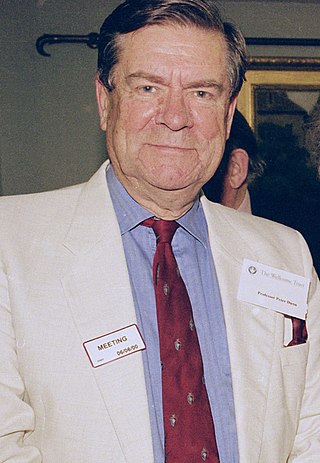
Peter MacNaughton Dunn, FRCP, FRCOG, FRCPCH was an English paediatrician. Dunn was most notable for introducing into the UK the Gregory box in 1971, that provides Continuous positive airway pressure in the treatment of infant respiratory distress syndrome of the newborn and conducting research into Hip dysplasia and fetal adaptation to extrauterine life. Dunn was also notable for being known for founding the charity association British Association of Perinatal Medicine.
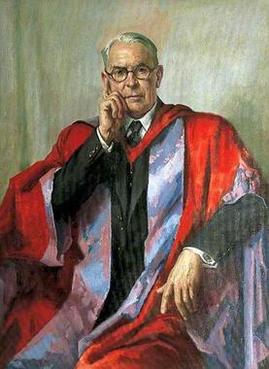
Sir Alan Aird Moncrieff, was a British paediatrician and professor emeritus at University of London. He was most notable for developing the first premature-baby unit in 1947. It was Moncrief who recognised and developed the concept of daily parental visits to the ward, which he developed while at Great Ormond Street, well before the need for this became recognised, and with his ward sister, published an article on Hospital Visiting for Children in 1949.
David Ian Tudehope is an Australian physician, specialising in neonatology.

Sir Kenneth William Cross FRCP was a British physiologist who was principally known for his fundamental contributions to the physiology of newborns that are relevant to paediatric practice.

David Robert Harvey was a British paediatrician and considered by his peers to be a champion of the less privileged. Harvey was most notable for developing the training of neonatal medicine doctors at a time when the speciality had no official recognition. Harvey was homosexual and never afraid to disclose it, even at the beginning of his career, when homophobia was more prominent.
Andrew Wilkinson is a Professor Emeritus of Paediatrics and Perinatal Medicine at All Souls College, Oxford. Wilkinson is most notable for being an international authority in neonatology and a lead author of the Standards of Care for NICU and NICE guidelines on retinopathy of prematurity.

British Association of Perinatal Medicine known as BAPM, is a charitable organization that was founded in Bristol in 1976 that is most notable for being a pressure group to advance the standards of perinatal care within the United Kingdom by a dedicated core of professional physicians who are accredited by examination.
Thomas Ernest Oppé was an English paediatrician and a professor of paediatrics at St Mary's Hospital, London. He is regarded as a pioneer in children's health services and infant nutrition.
Neil McIntosh is a British and Scottish paediatrician and neonatologist who was most notable for being the leading writer of a pivotal article that defined standards of ethical behaviour in paediatrics, including withdrawal of newborn intensive care. McIntosh is emeritus professor of Neonatology and Child Life and Health at the University of Edinburgh. During McIntosh's career he has researched mineral metabolism in preterm infants, computerised acquisition of physiological data in Neonatal Intensive Care Nursing.

Professor Melissa Anne Wake MBChB MD FRACP FAHMS is a paediatrician and Scientific Director of the Generation Victoria initiative, aiming to create very large, parallel whole-of-state birth and parent cohorts in Victoria, Australia, for Open Science discovery and interventional research. She is Group Leader of the Murdoch Children's Research Institute’s Prevention Innovation Research Group and holds Professorial positions with the University of Melbourne and the University of Auckland.
Julie Bines, is a clinician and researcher working in Melbourne, Australia. Alongside being a professor and deputy head of the Department of Paediatrics at the University of Melbourne, she is also a paediatric gastroenterologist at the Royal Children's Hospital Melbourne and is the leader of the Enteric Diseases group at the Murdoch Children's Research Institute. Bines is the joint head of the WHO Collaborative Centre for Child Health and founding member of Women in Global Health Australia.
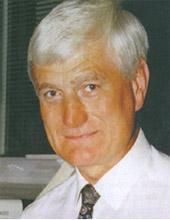
Henry Lewis Halliday was a British-Irish peaditrician and neonatologist. In 2021, Halliday was awarded the James Spence Medal for research into neonatology, for coordinating two of the largest neonatal multicentre trials for prevention and treatment of a number of neonatal respiratory illnesses and for a breakthrough in the development of a new lung surfactant that brought relief to very small babies suffering from infant respiratory distress syndrome (RDS).
References
- 1 2 3 4 5 Award ID: 2004661, Australian Honours Search Database, Department of the Prime Minister and Cabinet, Australian Government. Accessed 19 June 2019.
- 1 2 3 Key staff: Lex William Doyle, MD BS MSc FRACP, Royal Women's Hospital. Accessed 19 June 2019.
- ↑ (20 November 2017) Cool Topics reflects on the global impact of Prof Lex Doyle, Royal Women's Hospital. Retrieved 19 June 2019.
- ↑ Victorian Infant Collaborative Study Group: Staff, University of Melbourne. Accessed 19 June 2019.
- ↑ (27 May 2019) Centre for Research Excellence in Newborn Medicine's Professor Lex Doyle honoured for outstanding contribution to paediatrics, Murdoch Children's Research Institute. Retrieved 19 June 2019.
- ↑ (29 November 2003) Brain challenge for premature babies, The Age . Retrieved 19 June 2019.
- ↑ (12 June 2005) Baby, you have a lot of living to do, The Age. Retrieved 19 June 2019.
- ↑ Doyle, Lex (17 March 2009) Premature babies are worth every cent, news.com.au . Retrieved 19 June 2019.
- ↑ Kleinman, Rachel (24 November 2016) Hospital researchers put life-long focus on Victoria's tiniest babies, The Age. Retrieved 19 June 2019.
- ↑ Scott, Sophie; Armitage, Rebecca (15 July 2017) Giving caffeine to premature babies has long-lasting benefits, study finds, ABC News . Retrieved 19 June 2019.
- ↑ Swan, Norman (31 July 2017) Better therapies, better outcomes?, The Health Report . Retrieved 19 June 2019.
- ↑ (27 May 2019) Professor Lex Doyle honoured for outstanding contribution to paediatrics, Royal Women's Hospital. Retrieved 19 June 2019.